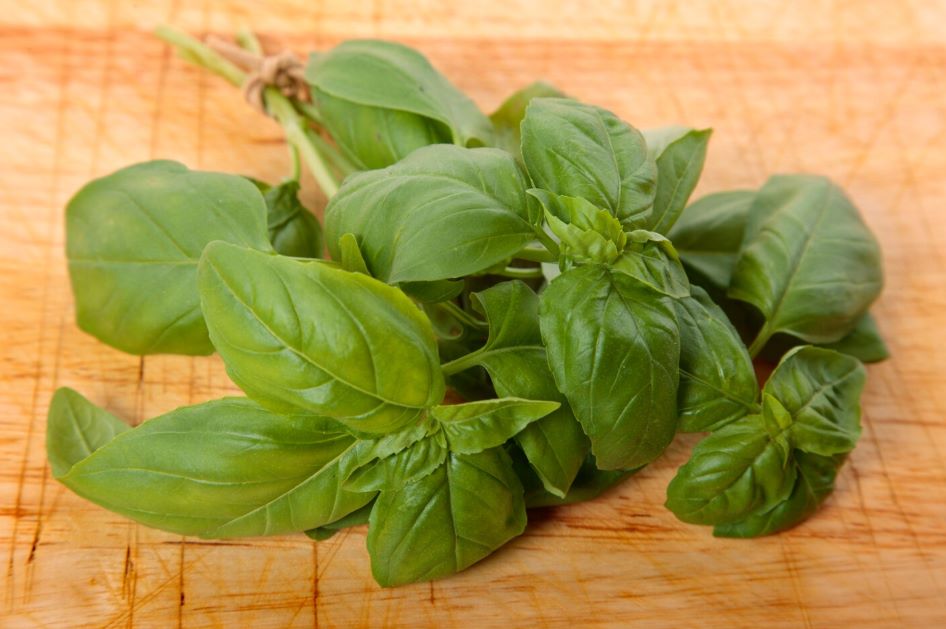Five healthy reasons to add basil to your meals

Beyond its fragrant leaves and distinctive taste, nutrition experts say basil packs a powerful punch of health benefits that make it more than just a kitchen staple.
From garnishing pasta, salads, teas and soups to flavouring curries, basil has long been valued as a culinary herb.
But beyond its fragrant leaves and distinctive taste, nutrition experts say basil packs a powerful punch of health benefits that make it more than just a kitchen staple.
More To Read
- Home living: 10 essential items Kenyans should replace at least once a year
- 14 foods that don’t mix well and why you should avoid them
- As August temperatures drop, here is why you need a sauna or steam bath
- How to make irresistible caramel popcorn using a sufuria
- How to make a nutritious Mediterranean breakfast for the whole family
- Study shows physical exercise can greatly reduce cancer recurrence
According to nutritionists and recent studies, incorporating basil into daily meals can improve overall well-being in several ways.
“Many Kenyan homecooks are so used to shopping for curry, garlic, paprika, ginge,r among other spices, the basil spice is often forgotten,” Nutritionist Wincate Wangari told The Eastleigh Voice.
“The leaves, both in fresh and dried form, are used as a culinary ingredient in different cultures.”
According to WebMD, there are more than 60 varieties of basil, with sweet basil being one of the most widely used.
Sweet basil is known for its strong aroma and distinctive flavour. The other varieties provide unique taste profiles; for example, lemon basil carries a tangy citrus note, while mint basil offers a refreshing hint of mint.
1. Rich in antioxidants
Wangari says that basil is a natural source of antioxidants such as flavonoids, eugenol and polyphenols, compounds that help neutralise harmful free radicals in the body.
These antioxidants play a role in protecting cells from oxidative stress, potentially lowering the risk of chronic diseases like heart disease, diabetes, arthritis and certain cancers.
2. Supports heart health
Compounds in basil, including eugenol, have been shown to help reduce blood pressure and improve circulation. Regular consumption may also help lower cholesterol levels, contributing to a healthier cardiovascular system.
”Basil also contains magnesium, which can help improve your blood flow by allowing your muscles and blood vessels to relax.”
3. Natural anti-inflammatory properties
Basil contains essential oils including eugenol, linalool and citrenellol that exhibit strong anti-inflammatory effects. These properties may help relieve symptoms of inflammatory conditions such as arthritis and inflammatory bowel diseases, making basil not just flavourful, but medicinal too.
4. Boosts immunity
“Basil is also rich in Vitamin K, A, and C as well as trace minerals like iron and manganese, which can help strengthen the immune system,” Wangari notes.
Vitamin C, in particular, supports white blood cell function, while vitamin A enhances the body’s natural defence mechanisms.
5. Aids digestion and gut health
Traditionally, basil has been used to soothe digestive discomfort. Basil has a natural compound that can help stimulate appetite, reduce bloating, and support healthy gut bacteria, making it a useful herb for maintaining digestive balance.
Health experts like Wangari recommend using fresh basil whenever possible to maximise its nutritional benefits. While dried basil still contains useful compounds, much of the vitamin content diminishes during the drying process.
“Small lifestyle changes like adding fresh basil leaves to soups, salads, or smoothies can have long-term health impacts, but remember moderation is key. This is a simple step that boosts flavour and nutrition at the same time,” she noted.
However, Wangari cautioned that people with chronic diseases should consult their doctors before adding basil to their diets because more research is needed to determine its potential side effects.
According to the Healthline, if you are pregnant or trying to get pregnant. Animal studies suggest that basil supplements may negatively affect sperm and trigger contractions in pregnancy.
Though basil allergies are rare, a few cases have been observed in people who reacted to pesto.
“Additionally, people taking blood pressure-lowering drugs or diabetes drugs should use caution with basil supplements since they may lower blood pressure and blood sugar. Your doctor may need to decrease your drug dose, but check in with them before taking any drugs or supplements.”
Top Stories Today












































